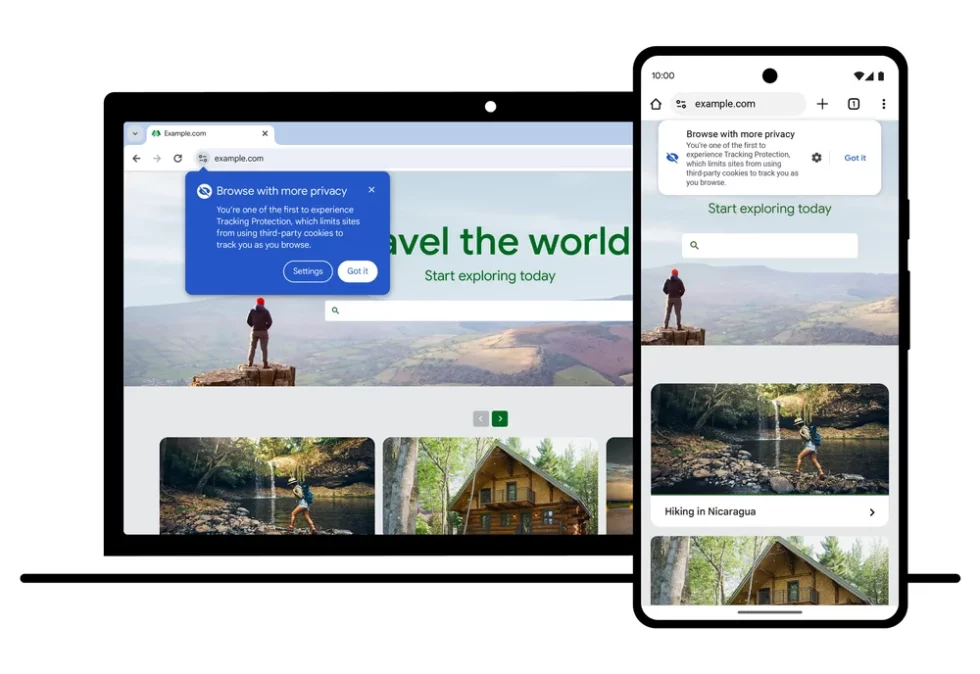It’s all going to plan —
Google delayed long enough to secure its ad business with new tracking methods.

Chrome has finally announced plans to kill third-party cookies. It’s been almost four years since third-party cookies have been disabled in Firefox and Safari, but Google, one of the world’s largest ad companies, has been slow-rolling the death of the tracking cookie. Ad companies use third-party cookies to track users across the web, and that web activity is used to show users relevant ads. Now that Google’s alternative user-tracking ad system, the “Privacy Sandbox,” has launched in Chrome, it’s finally ready to do away with the previous form of ad tracking. The new timeline to kill third-party cookies is the second half of 2024.
Google’s blog post calls the rollout “Tracking Protection” and says the first tests will begin on January 4, where 1 percent of Chrome users will get the feature. By the second half of 2024, the rollout should hit everyone on desktop Chrome and Android (Chrome on iOS is just a reskinned Safari and is not applicable). The rollout comes with some new UI bits for Chrome, with Google saying, “If a site doesn’t work without third-party cookies and Chrome notices you’re having issues—like if you refresh a page multiple times—we’ll prompt you with an option to temporarily re-enable third-party cookies for that website from the eye icon on the right side of your address bar.” Since other browsers have been doing this for four years, it’s hard to imagine many web admins not being ready for it.

Enlarge / Chrome’s new third-party cookies controls.
Google says the rollout is “subject to addressing any remaining competition concerns from the UK’s Competition and Markets Authority.” Chrome’s Privacy Sandbox switch represents the world’s most popular browser (Google Chrome) integrating with the web’s biggest advertising platform (Google Ads) and shutting down alternative tracking methods used by competing ad companies. So, some regulators are naturally interested in the whole process.
Google says its choice to offer this privacy feature four years after its competitors is a “responsible approach” to phasing out third-party cookies. That responsibility seems to primarily be about responsibility to Google’s shareholders since turning off tracking cookies was previously seen as an attack on Google’s business model. Google’s position as the world’s biggest browser vendor allowed it to delay the death of tracking cookies long enough to create an alternative tracking system, which launched earlier this year in Chrome. With the ad business secured, it’s now acceptable to phase out cookies. So far, everything is going to plan.